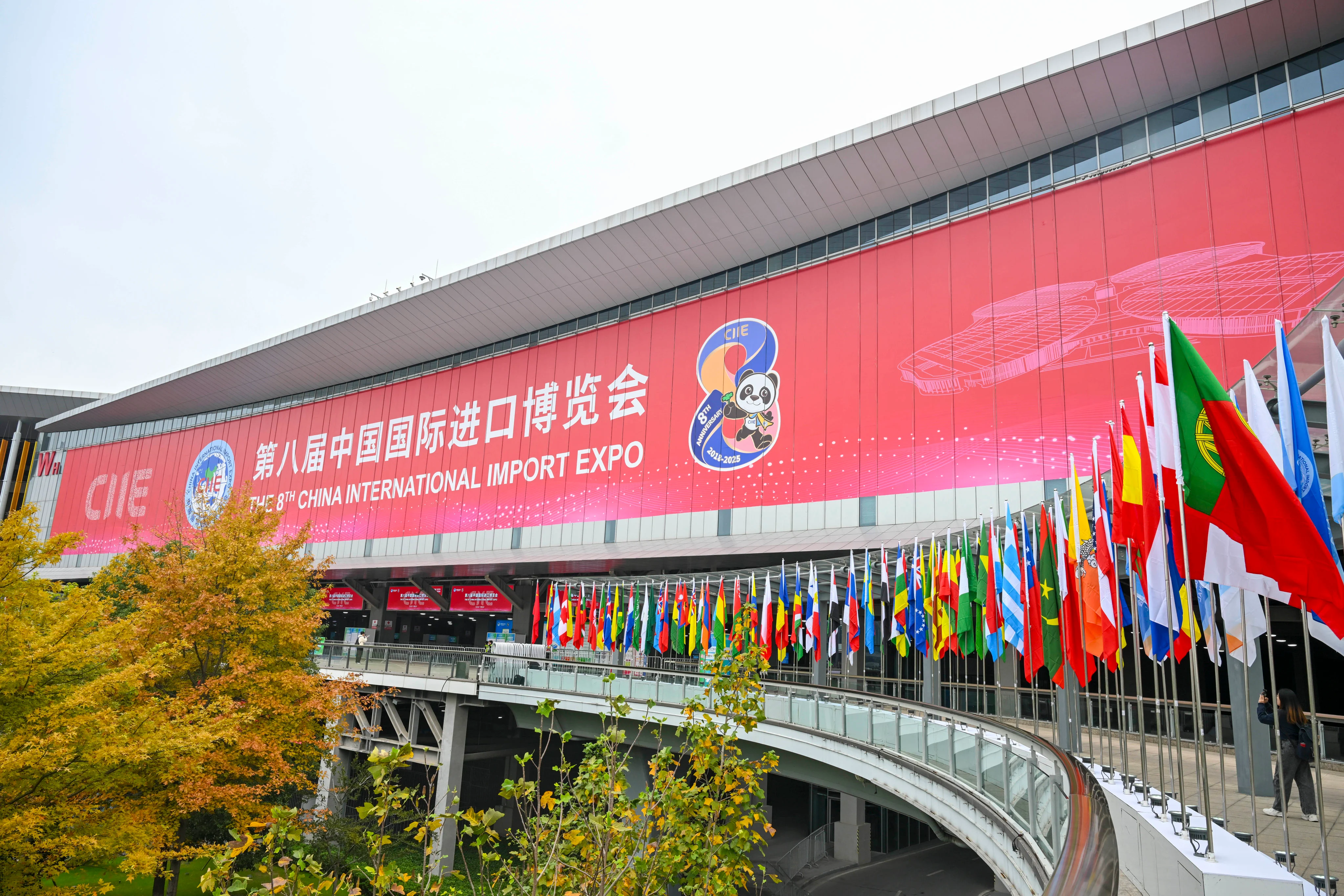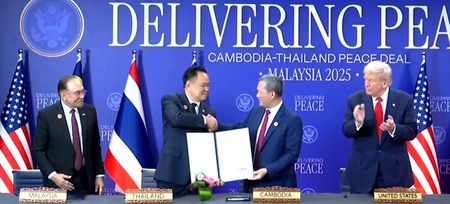Copyright scmp

Chinese Premier Li Qiang has pledged to further open the country’s vast consumer market to international businesses after Beijing and Washington reached a significant trade deal that was expected to help restore normalcy to global supply chains. Addressing about 1,000 government officials, business leaders and merchants at the opening of the China International Import Export (CIIE) in Shanghai on Wednesday, the premier said Beijing remained resolute about supporting globalisation and consolidating its economic ties with trading partners. “At a time when the world economy is slowing down and international disputes are intensifying, we must all the more adhere to equal and mutually beneficial cooperation, embrace free markets and free trade, and resolve cross-border contradictions and problems through joint development,” he said. “China is willing to work with all parties to create an open and inclusive development environment, enhance the level of trade and investment liberalisation and facilitation, ensure the stability and smooth operation of global industrial and supply chains, and better gather momentum for economic development.” China would focus on “promoting high-quality development, expanding domestic demand – especially consumption – and fully unleashing the internal demand potential of our large market of over 1.4 billion people,” Li added. In the next five years, China’s economic scale was projected to exceed 170 trillion yuan (US$23.9 trillion), he said. “The country will steadfastly advance high-level opening-up to the outside world.” Li condemned the rise of tariffs in international trade, noting that they had “seriously undermined international economic and trade rules and disrupted the normal operations of enterprises” in various countries. In his third consecutive year attending the world’s largest trade fair, Li extended Beijing’s olive branch to multinational companies such as General Electric and Lululemon, encouraging them to bolster their operations in mainland China. His upbeat statements came after Chinese President Xi Jinping and his US counterpart Donald Trump agreed to a trade pact in South Korea last week, which included tariff reductions by the US and a suspension of Beijing’s new restrictions on rare earth minerals and magnets. Chinese Commerce Minister Wang Wentao said at the opening ceremony that “since its inception in 2018, the CIIE has continuously served as a platform for international procurement, investment promotion, people-to-people exchanges and open cooperation”. Beijing will also resume purchases of American soybeans under the deal. More than a dozen farmers from the US would display their wares at the official American Food and Agriculture Pavilion during this year’s CIIE, according to the American Chamber of Commerce in Shanghai, which co-organises the exhibits with the US Department of Agriculture. According to three company officials involved in the preparations, Li would also visit pavilions set up by some US companies after the opening – sending a clear signal to American and global businesses that the Chinese market would still be fully open to them amid the de-escalation of the trade war between the world’s two largest economies. The Chinese economy has been grappling with deflationary pressures over the past three years as consumers were reluctant to increase spending amid worries about job prospects and a poor economic outlook. But Li reiterated that the mammoth market had huge potential for foreign companies because of people’s rising incomes and the economy’s resilience. “We saw a robust growth in people’s disposable income during the first three quarters of this year,” said Liu Liang, deputy director of the Shanghai Academy of Social Sciences’ institute of applied economics, who is also an economic adviser to the local government. “My take is that with more cash on hand, retail spending will see a moderate rise in the coming months.” Despite tensions with the US, China’s exports continued to grow in the first nine months of the year. Between January and September, China shipped goods worth 19.95 trillion yuan, up 7.1 per cent on year. The annual six-day event covers 430,000 square metres at the National Exhibition and Convention Centre and has attracted 4,108 companies from around the world, according to its organiser, the CIIE Bureau – a unit of the Ministry of Commerce. A total of 33 conferences under the Hongqiao International Economic Forum will also be held as part of the CIIE’s schedule of events. Hong Kong Chief Executive John Lee Ka-chiu is scheduled to visit pavilions and booths featuring the city’s goods and services on Wednesday afternoon. He will also participate in a conference on Thursday to attract investment to Hong Kong. Deals worth US$80 billion were signed last year at the expo, up 2 per cent from 2023, according to the CIIE Bureau.



